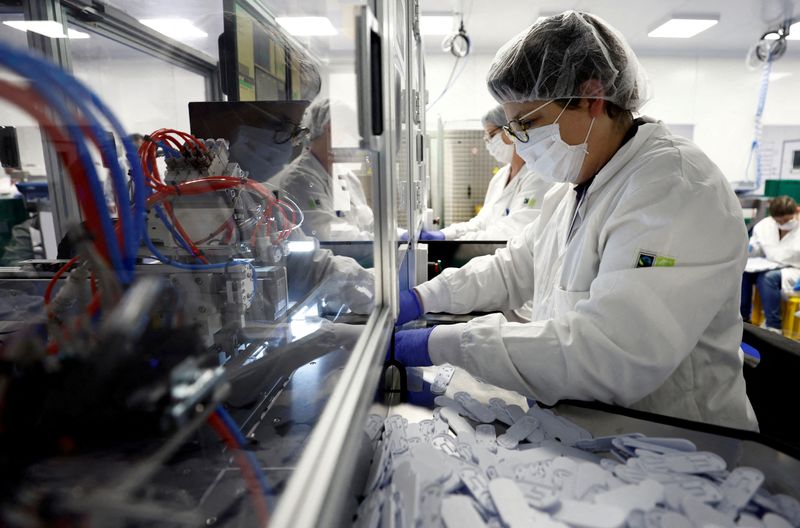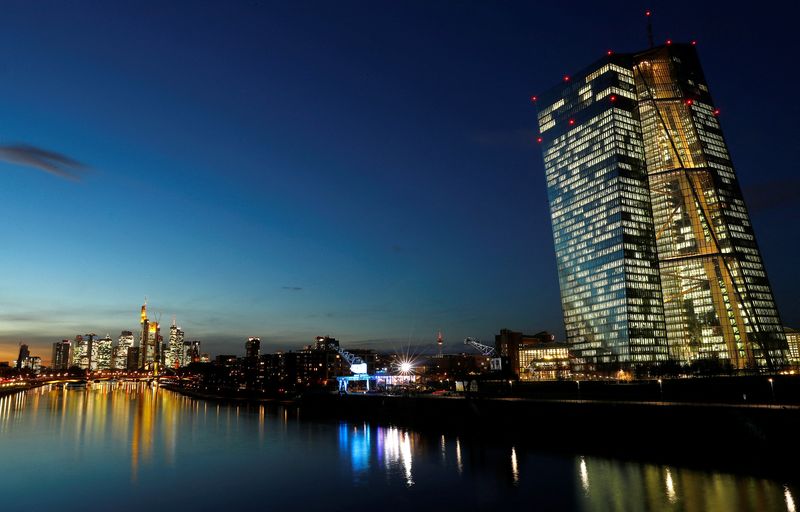LONDON (Reuters) - Euro zone manufacturing activity accelerated last month as supply chain bottlenecks eased, although the improvement was not evenly spread across member countries and factories still faced high inflationary pressures, a survey showed on Tuesday.
IHS Markit's final manufacturing Purchasing Managers' Index (PMI) rose to a five-month high of 58.7 in January from December's 58.0, below an initial "flash" estimate of 59.0 but comfortably above the 50 mark separating growth from contraction.
An index measuring output, which feeds into a composite PMI due on Thursday and seen as a good gauge of economic health, jumped to 55.4 from 53.8.
"Euro zone manufacturers appear to be weathering the Omicron storm better than prior COVID-19 waves so far, with firms reporting the largest production and order book improvements for four months in January," said Chris Williamson, chief business economist at IHS Markit.
"The improvement is by no means evenly spread across the euro zone, however, with resurgent growth in Germany, the Netherlands and Austria contrasting with slowdowns in Italy, Spain and Greece and near-stalled production in France."
Raw material prices continued to soar, albeit at a slower pace than in December, and factories passed more of that burden on to consumers. The output prices index climbed to 72.7 from 70.2 - the second-highest reading in almost two decades.

Euro zone inflation is set to burn hotter throughout 2022 than previously expected, according to economists polled by Reuters last month, which could pressure the European Central Bank to tighten policy once the Omicron wave of the pandemic passes.
The ECB, which meets on Thursday, has resisted calls for tighter policy, sticking to the view price pressures will ease this year.
